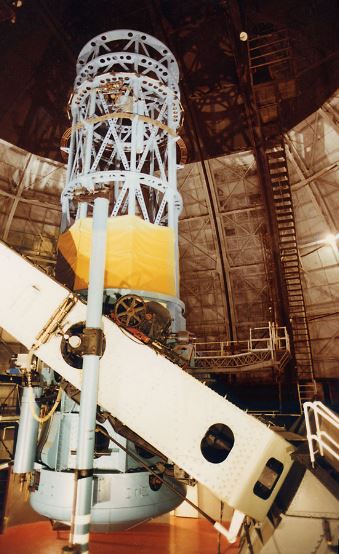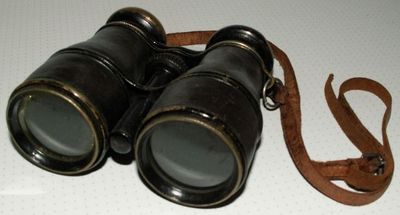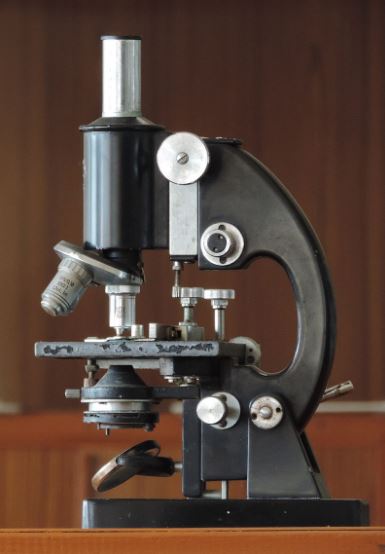Difference between revisions of "Optical Instruments"
Seema Kausar (talk | contribs) |
Seema Kausar (talk | contribs) |
||
| Line 31: | Line 31: | ||
= Additional information = | = Additional information = | ||
Show the children pictures of various Optical Instruments such as: | Show the children pictures of various Optical Instruments such as: | ||
| − | #Telescope | + | #Telescope |
[[File:Telescope.JPG|400px]] | [[File:Telescope.JPG|400px]] | ||
| − | #Binoculars | + | #Binoculars |
[[File:Binocoulars.JPG|400px]] | [[File:Binocoulars.JPG|400px]] | ||
| − | #Microscope | + | #Microscope |
[[File:Microscope.JPG|400px]] | [[File:Microscope.JPG|400px]] | ||
==Useful websites== | ==Useful websites== | ||
Revision as of 06:41, 31 May 2016
| Philosophy of Science |
While creating a resource page, please click here for a resource creation checklist
Concept Map
Error: Mind Map file Optical_Instruments.mm not found
Textbook
To add textbook links, please follow these instructions to: (Click to create the subpage)
Additional information
Show the children pictures of various Optical Instruments such as:
- Telescope
- Binoculars
- Microscope
Useful websites
Wikipedia for Optical Instruments
Use of an Optical Instruments
Reference Books
Teaching Outlines
Concept #Introduction to Optical Instruments
Learning objectives
- Define optics
- Explain how a compound microscope uses convex lenses to make an enlarged image of a tiny object.
- To generate ray diagrams to predict the positions and size of images in optical systems
- To understand how optical instrument work
- To understand the operation of reflecting telescope
- Uses of optical instruments
Notes for teachers
These are short notes that the teacher wants to share about the concept, any locally relevant information, specific instructions on what kind of methodology used and common misconceptions/mistakes.
Activity No # Human Eye
- Estimated Time
- Materials/ Resources needed
- Prerequisites/Instructions, if any
- Multimedia resources
- Website interactives/ links/ simulations
- Process (How to do the activity)
- Developmental Questions (What discussion questions)
- Evaluation (Questions for assessment of the child)
- Question Corner
Activity No # Microscope
- Estimated Time
- Materials/ Resources needed
- Prerequisites/Instructions, if any
- Multimedia resources
- Website interactives/ links/ simulations
- Process (How to do the activity)
- Developmental Questions (What discussion questions)
- Evaluation (Questions for assessment of the child)
- Question Corner
Concept # Types and Uses of Optical Instruments
Learning objectives
Notes for teachers
These are short notes that the teacher wants to share about the concept, any locally relevant information, specific instructions on what kind of methodology used and common misconceptions/mistakes.
Activity No # Telescope
- Estimated Time
- Materials/ Resources needed
- Prerequisites/Instructions, if any
- Multimedia resources
- Website interactives/ links/ simulations
- Process (How to do the activity)
- Developmental Questions (What discussion questions)
- Evaluation (Questions for assessment of the child)
- Question Corner
Activity No # Camera
- Estimated Time
- Materials/ Resources needed
- Prerequisites/Instructions, if any
- Multimedia resources
- Website interactives/ links/ simulations
- Process (How to do the activity)
- Developmental Questions (What discussion questions)
- Evaluation (Questions for assessment of the child)
- Question Corner
Project Ideas
- Projects about the types of lenses which can be identified easily and are used in day to day life
- To draw the ray diagram for the formation of image by a lens
- Identify the uses of lenses in day to day life: Divide the class into groups and list down all the ideas on a chart paper
Fun corner
Usage
Create a new page and type {{subst:Science-Content}} to use this template


